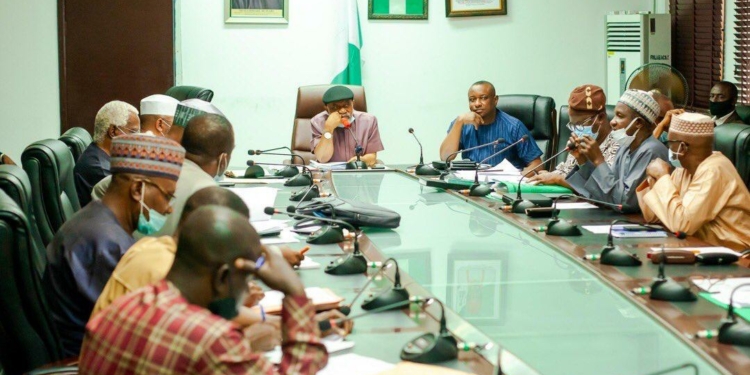The details of the agenda of the meeting between Academic Staff Union of Universities (ASUU) and federal government delegate have emerged.
WITHIN NIGERIA had reported that the federal government delegates met with the union on Monday night to address the lingering industrial action embarked on by the union that has crippled tertiary education in public universities across the country.
Speaking on Monday after meeting with members of the government side of the 2009 federal government/university based unions agreement re-negotiation committee, Chris Ngige, minister of labour and employment, directed ASUU to resolve issues with the ministry of education.
An earlier strike declared by ASUU over the non-implementation of an agreement reached with the federal government in 2020 ended on March 14.
However, following dissatisfaction with the federal government’s “disappointing” response on the matter, the strike was extended by eight weeks.
Speaking after the meeting on Monday, The minister said in the December 2020 agreement, he gave the government side a timeline to return to the university unions to sort out the pending issues.
According to a statement by Patience Onuobia, spokesperson of the ministry of labour, the renegotiation committee delegation was led by Nimi Briggs, its chairman.
Ngige said as the “conciliator”, he has been pushing to see that everything contained in the 2020 Memorandum of Understanding (MOU) reached with the government was implemented.
He said the renegotiation commenced in 2017 when the federal government inaugurated a committee headed by Wale Babalakin, who was later replaced by Munzali Jibril, a professor.
“I started pushing to see that things were done. What the Munzali committee came up with is a proposal. Both Munzali and ASUU did not sign. At our last meeting in February before ASUU proceeded on strike, we said everyone should go back to his principal,” he said.
”I asked education several times what they had done with the document. We later got information on areas of disagreement. There is nothing wrong with that. It is bound to happen. I told ASUU to put up a committee; they said Munzali committee had expired.
“As a conciliator, I have to make use of the labour instruments at my disposal. The bosses in the federal ministry of education do not feel the strike. There are things that are above me. I am not minister of education.
”I cannot go to the education minister and dictate to him how to run his place. But I told ASUU that you should be bombarding them at the federal ministry of education for this to be moved forward. There are many ways to do so.
“If you go to the labour act there is something called picketing. You can picket; strike is an ultimate thing. Picketing means that you can stay at the corridor, clapping or singing. Workers are permitted to do so. But every time there is a disagreement, it is strike.
“It is [affecting] the children and some of us parents that have our children in public schools. I have my children in public universities, including those on my foundation’s scholarship and sponsorship. So, I am a parent. I feel it. I didn’t send my children to Igbinedion or Afe Babalola or Cambridge.”
He added that the Nigerian university system produced him and he remains proud of it.
“Why won’t I support if ASUU and their unions now want a renegotiation of their conditions of service, which is the main thing in the proposal by previous Munzali committee?” he asked.
On his part, Briggs, who is also the pro-chancellor of Alex Ekwueme Federal University in Ebonyi state, said the renegotiation committee was consulting all stakeholders with a view to finding lasting solution to issues in dispute.










Discussion about this post